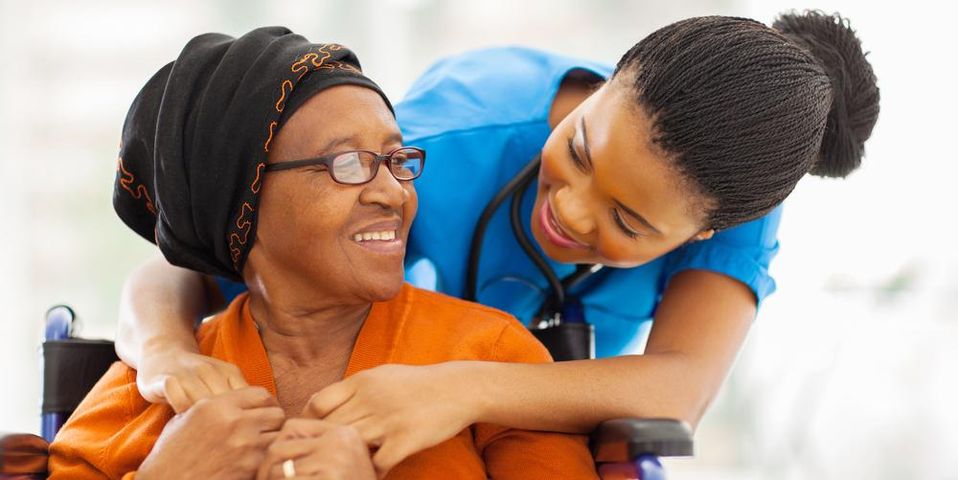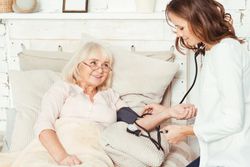3 Ways to Help a Senior After a Stroke

Many seniors lose some degree of independence after having a stroke. This brain injury can require months of rehabilitation before the individual can move and speak normally. Senior caregivers can benefit from learning ways to help older adults recover. Below, St. Charles Community in Covington, KY, shares some tips so you’re better prepared to assist seniors after a stroke.
3 Ways to Help a Stroke Survivor
1. Communicate
It’s common for senior caregivers to notice that a person’s speech changes after a stroke. Seniors may experience drooping on one side of their mouths, which makes it difficult to speak normally. Some people may even stop talking altogether. Continue trying to communicate with the individual to provide a sense of normalcy. Through rehab, many people regain their ability to speak and understand speech.
2. Minimize Group Environments
 Stroke survivors do best in environments where they are one-on-one with their caregiver or visiting loved ones. Avoid large crowds or having a lot of people around, as this can prove disorienting to individuals who experience confusion as a post-stroke symptom.
Stroke survivors do best in environments where they are one-on-one with their caregiver or visiting loved ones. Avoid large crowds or having a lot of people around, as this can prove disorienting to individuals who experience confusion as a post-stroke symptom.
3. Be Empathetic
It’s easy for stroke survivors to become frustrated during their recovery. The person may not get better as fast as they’d like, which can cause anxiety and depression. Caregivers must be empathetic and understanding in this situation and provide encouragement to boost the senior’s mood.
Strokes can cause permanent damage, but many survivors recover to a degree. Caregivers who offer assistance while still providing some level of independence play a key role in furthering stroke recovery. To find senior caregiver resources and learn about the rehabilitation and adult day services offered at St. Charles Community, call (859) 331-3224 or visit the website.
About the Business
Have a question? Ask the experts!
Send your question

